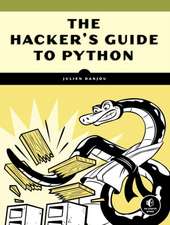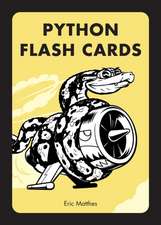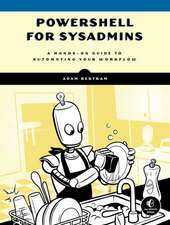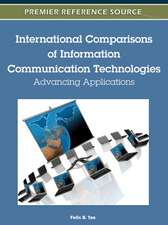The Linux Programming Interface
Autor Michael Kerrisken Limba Engleză Hardback – 9 ian 2010
Preț: 467.90 lei
Preț vechi: 692.59 lei
-32% Nou
Puncte Express: 702
Preț estimativ în valută:
89.54€ • 93.14$ • 73.92£
89.54€ • 93.14$ • 73.92£
Carte disponibilă
Livrare economică 27 martie-02 aprilie
Livrare express 08-14 martie pentru 187.63 lei
Preluare comenzi: 021 569.72.76
Specificații
ISBN-13: 9781593272203
ISBN-10: 1593272200
Pagini: 1552
Dimensiuni: 184 x 244 x 60 mm
Greutate: 2.34 kg
Editura: Penguin Random House Group
Colecția No Starch Press
Locul publicării:New York, United States
ISBN-10: 1593272200
Pagini: 1552
Dimensiuni: 184 x 244 x 60 mm
Greutate: 2.34 kg
Editura: Penguin Random House Group
Colecția No Starch Press
Locul publicării:New York, United States
Descriere
The Linux Programming Interface is the definitive reference to the Linux and UNIX programming interface that's used by nearly every application that runs on a *NIX system. UNIX programming veteran Michael Kerrisk offers detailed descriptions and useful, real-world examples of the system calls and standard library functions needed to write powerful low-level applications, such as shells, terminal emulators, network servers, and many other vital system programs. Extensively indexed and heavily cross-referenced, The Linux Programming Interface is both an introductory guide for readers new to the topic of system programming, and a comprehensive reference for experienced developers. Although this book goes into detail on a wealth of Linux-specific features, it also devotes careful attention to contemporary UNIX programming standards and portability issues.





















